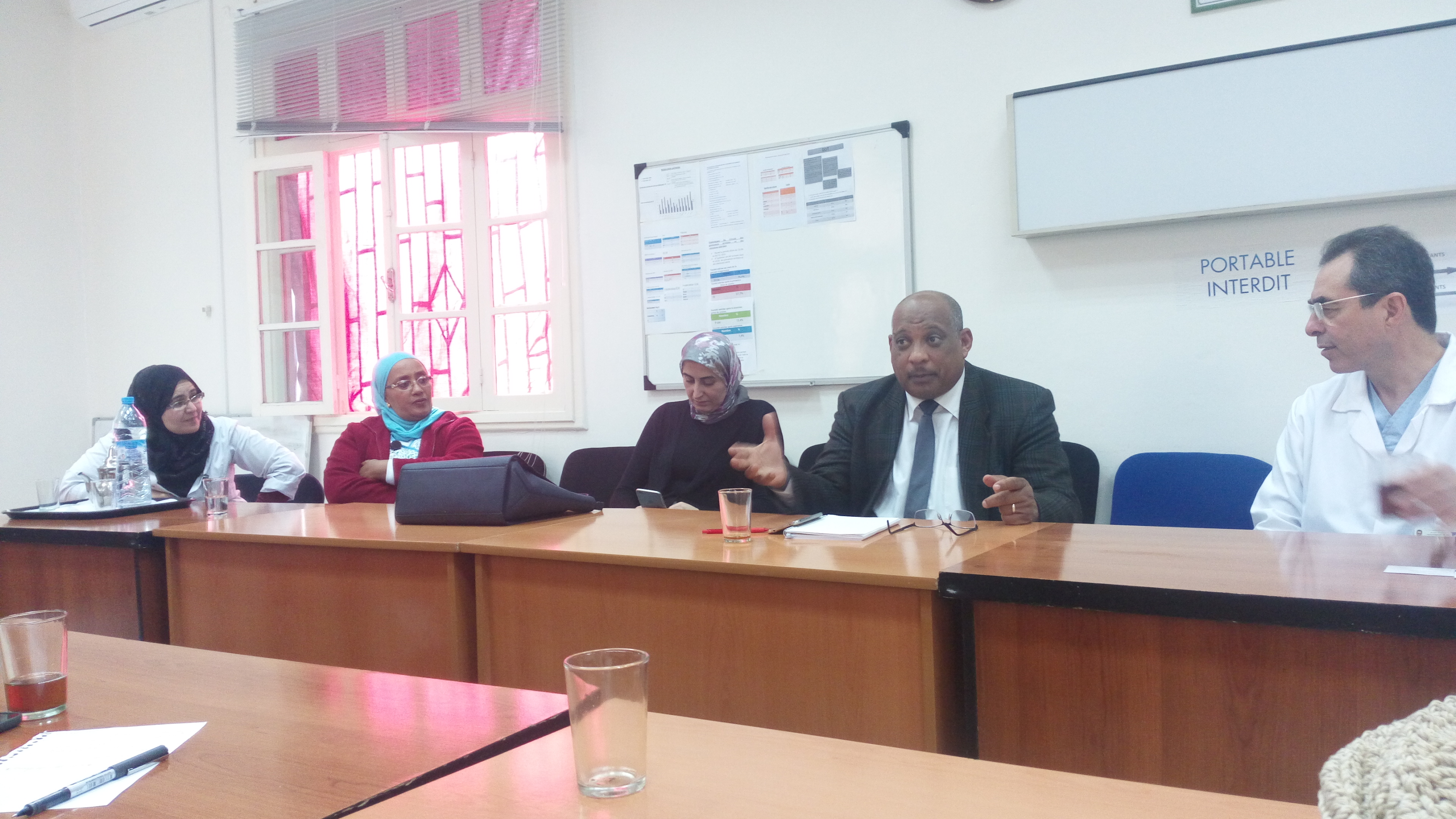 Upgrading Midwifery Education Programme and Services
Learning and networking visit of Sudanese policymakers and experts to Morocco to learn about their midwifery programme.
Upgrading Midwifery Education Programme and Services
Learning and networking visit of Sudanese policymakers and experts to Morocco to learn about their midwifery programme.

Challenges
In Sudan, nearly three quarters or 72.3 per cent of birth deliveries occurred at home, and most of these were assisted by midwives. The country, however, lacked a skilled and competent cadre of midwives that meets the International Confederation of Midwives (ICM) global standards for midwifery education. The capacity of “community midwives,” in particular, was limited and, hence, was not capable of providing the full range of family planning services or any type of emergency obstetric care in the absence of medical professionals in the field. There were many gaps in the quality of care provided by midwives in villages, as well as in health facilities.
At 311 deaths per 100,000 live births, Sudan had a very high maternal mortality ratio, and it was higher for women living in rural areas and among poorer communities. The neonatal mortality rate was also high ranging from 34 to 47 per 1,000 births. Studies revealed that the majority of neonatal mortality occurred at home, where unskilled birth attendance was utilized. The Government of Sudan recognizes that it was imperative to build local midwifery capacity to provide quality maternal and newborn health care services.
Towards a Solution
Aware of the need to ensure that midwives are available to provide skilled quality attendance, the Government of Sudan, with technical and financial support from UNFPA, embarked on a South-South cooperation initiative with Morocco to help build its midwifery education programme and services.
Sharing a similar culture with Sudan, Morocco was successful in improving maternal health in general and, more specifically, in delivering improved midwifery services. Sharing its experience with Sudanese counterparts through study tours, would be beneficial, especially in addressing the three pillars of the midwifery programme: education, regulation and association.
Thus, a team of technical experts and decision makers from Sudan, including representatives from the National Reproductive Health Programme, the Academy of Health Sciences, the Primary Health Care Expansion Project of the Ministry of Health and midwifery educational institutions, participated in exchange and learning visits to Morocco that included meetings with relevant departments in the Ministry of Health of Morocco, the Higher Institute for Nursing and Health Techniques, the Maternity Hospital and the midwifery and family planning associations. The interactions between the countries involved many institutions.
Results
Following the exchange and learning visits to Morocco, the Ministry of Health of Sudan, with technical support from UNFPA, developed an action plan for strengthening the midwifery programme. A series of meetings were organized with policy makers in the Ministry of Health and Ministry of Higher Education to advocate for adopting the Moroccan model of midwifery education. The efforts succeeded, and a decision was made to discontinue the community midwife education programme and replace it with a professional education programme that follows the ICM global standards.
The learning visits covered various aspects of a midwifery programme, including educational institutions and curriculum, regulatory framework, work settings, quality assurance and supervision, practice standards, retention and motivation of midwives as well as organisation and activities of midwifery associations. Strategic and guiding documents on midwifery were shared by the Moroccan team with permission to use them to guide the development of similar programmes in Sudan. Furthermore, the two governments agreed to further strengthen their collaboration in midwifery and other health programmes.
A midwifery programme gap analysis was conducted and specific areas that need improvement have been identified. The Ministry of Health of Sudan mobilized resources from the Carter Center in addition to UNFPA resources to support the preparation of the new midwifery programme. A new midwifery curriculum was developed and four schools in different states of Sudan were selected and equipped to host the new programme, which was launched in September 2018. In addition, two universities have started a midwifery diploma programme.
Lessons Learned
Shared culture, values and norms between two collaborating countries, such as Sudan and Morocco, is important particularly in dealing with a sensitive issue relating to sexual and reproductive health. In addition, the support and commitment of top leadership are vital in building and strengthening local midwifery capacity that meets international standards and in the establishment of quality midwifery educational institutions.
Contact Information
Countries involved
Supported by
Implementing Entities
Project Status
Project Period
Primary SDG
Secondary SDGs
Similar Solutions
| NAME OF SOLUTION | Countries | SDG | Project Status | |
|---|---|---|---|---|
A Billion Brains: Smarter Children, Healthier Economies High Level Meeting on South-South Cooperation for Child Rights |
Morocco, Sudan | 17 - Partnerships for the Goals | Completed | View Details |
Accelerating the Implementation of African Union Treaties in São Tomé and Príncipe South-South learning from the Beninese judicial system’s experience in the application of human rights treaties to its national law |
Morocco, Sudan | 05 - Gender Equality | Completed | View Details |
Accelerating the Transformational Shift to a Low-Carbon Economy in Mauritius Towards supplying 35 percent of the country’s energy needs with renewables by 2025 |
Morocco, Sudan | 05 - Gender Equality 09 - Industry, Innovation and Infrastructure 13 - Climate Action | Ongoing | View Details |
Accelerator Labs Network Following collective intelligence methods to address emerging sustainability challenges and the growing demand for local solutions |
Morocco, Sudan | 08 - Decent Work and Economic Growth 13 - Climate Action | Ongoing | View Details |
Access to Justice through e-Services and Dematerialized Case Management Scaling up connectivity and unlocking the digital potential of judicial institutions to enhance access to justice for all |
Morocco, Sudan | 05 - Gender Equality | Completed | View Details |
